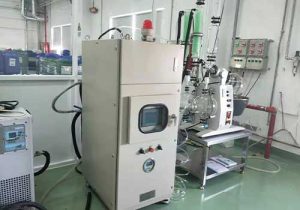split chiller
Split Chillers: Definition, Types, Efficiency, Market Trends, and Technical Specifications
Definition of Split Chillers
A split chiller is a versatile air conditioning system designed to provide cooling in various environments. Unlike traditional window units, split chillers separate the condenser and evaporator into two distinct units, typically an indoor unit and an outdoor unit. This design allows for more flexibility in installation and quieter operation as the condenser unit can be placed outside the cooled space.

Types of Split Chillers
Split chillers are available in various types to suit different cooling needs:
Air-Cooled Split Chillers: These are the most common type, using air as the cooling medium for the condenser. They are easy to install and require minimal maintenance.
Water-Cooled Split Chillers: These chillers use water as the cooling medium, which can be more efficient in warmer climates or where water is readily available.
Variable Refrigerant Flow (VRF) Systems: These are advanced split chiller systems that offer precise temperature control and energy savings by varying the flow of refrigerant to different zones.
Efficiency of Split Chillers
The efficiency of split chillers is measured by their Coefficient of Performance (COP) or Energy Efficiency Ratio (EER). Modern split chillers are designed with energy efficiency in mind, utilizing advanced compressor technology and eco-friendly refrigerants. They often feature inverters that adjust the compressor speed based on the cooling load, resulting in significant energy savings.

Market Trends for Split Chillers
The market for split chillers is influenced by factors such as the need for energy-efficient cooling solutions, the growing demand for comfort in commercial and residential spaces, and the push towards environmentally friendly refrigerants. The market is also driven by technological advancements that enhance performance and reliability. Key players in the market are focusing on innovation and expansion to meet the growing demand.
Technical Specifications of Split Chillers
When selecting a split chiller, several technical specifications must be considered:
Capacity: The cooling capacity should match the heat load of the space to be cooled. This is typically measured in tons or BTUs per hour.
Refrigerant Type: Modern chillers use environmentally friendly refrigerants with low Global Warming Potential (GWP), such as R-410A and R-134a.
Compressor Type: Chillers can use various compressor types, such as reciprocating, rotary, scroll, or centrifugal, each with its own advantages and applications.
Energy Efficiency Ratio (EER): This specifies the chiller’s efficiency under specific conditions, with higher EER values indicating better performance.

Noise Level: Split chillers are designed to operate quietly, with noise levels typically specified by the manufacturer.
Applications of Split Chillers
Split chillers are used in a variety of applications, including:
Commercial Buildings: They provide cooling for offices, malls, hotels, and other commercial spaces where multiple areas need to be cooled simultaneously.
Residential Spaces: Split chillers are increasingly popular for home use due to their efficiency and quiet operation.
Data Centers: They maintain optimal temperatures for server rooms, ensuring the reliability and longevity of IT equipment.
Industrial Processes: In industries such as manufacturing and food processing, split chillers provide precise temperature control for various processes.
In conclusion, split chillers offer a flexible and efficient cooling solution for a wide range of applications. Their ability to provide customized cooling in different environments makes them a popular choice in both commercial and residential settings. As technology continues to advance, split chillers are expected to become even more efficient and versatile, meeting the growing demand for sustainable cooling solutions.
Related recommendations
The Main Application Industries of Industrial Chillers
1526The Main Application Industries of Industrial Chillers Food industry: Some foods are thermally processed. In order to ensure convenience, they need to be cooled immediately after processing...
View detailsportable industrial chillers
765Portable Industrial Chillers: On-the-Go Temperature Control for Industrial Processes Portable industrial chillers, also known as portable cooling units, are specialized refrigeration systems de...
View detailsrecirculating water cooling system
324IntroductionIn numerous industrial and commercial applications, maintaining optimal operating temperatures is crucial for the efficient and reliable functioning of equipment and processes. Recirc...
View detailschiller items
489Chiller Items: Essential Components of Chiller Systems Chiller systems are crucial for maintaining optimal temperatures in various applications, including commercial buildings, industrial proce...
View details
 LNEYA Chiller
LNEYA Chiller






HelloPlease log in